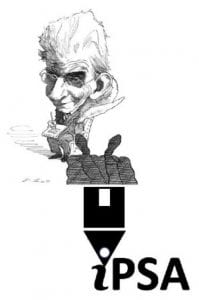• Maintain a bi-annual journal featuring theme issues drawn from zoom conferences.
The journal can allow for both blind-reviewed and invited/volunteered speculative works circulated to provoke dialogue. The aim is to open up new lines of research connecting Lacan’s teaching to architecture, architecture teaching, and architecture’s ethnographic past.
• Conduct seminars and workshops conducted by founding members and invited lecturers.
Lacan’s teachings lie outside the architecture/planning “academy,” which has typically preferred cognitive–behaviorist approaches to psychology.
• Build educational archives covering otherwise under–treated topics in architecture’s relation to psychoanalysis.
The Internet gives students access to free primary materials, secondary criticism, and graphically explicit reviews of complex issues; conferences, seminars, and interviews can be made available to global audiences.
• Continue conversations at any scale with members and invited guests.
From the scale of the personal exchange to a full–scale conference, critical exchanges improve the theoretical basis for understanding architecture’s grounding in psychoanalysis.
• Host symposiums and conferences on-line using the sch(MOOZ) protocol.
The reverse–zoom method is “dendridic” in its downhill flow of ideas, from local informal events to the collective of formal conferences and publications. The standard conference design is restrictive, selective, and non-expanding. The schMOOZ design finds the global in the local from the beginning.
• Provide feedback for works–in–progress.
First drafts, unfinished work, sketches, notes, nascent ideas, backs of envelopes … convert to PDFs and send them as attachments to kunze767@gmail.com.
• Build a Lacan-Architecture global network in the face of institutional resistance.
Lacanian psychoanalysis is intellectual challenging, but the wave of new translations and commentaries have made the field consistently rewarding. The wealth of on-line materials and a variety of professional groups open to both clinicians and scholars has benefitted from the limitations to on-line collaborations. There is never been a better supply of educational videos, web materials, and forensic sessions to aid individual and small-group study. iPSA was founded in the midst of the pandemic and embraced its limitations as advantages.
